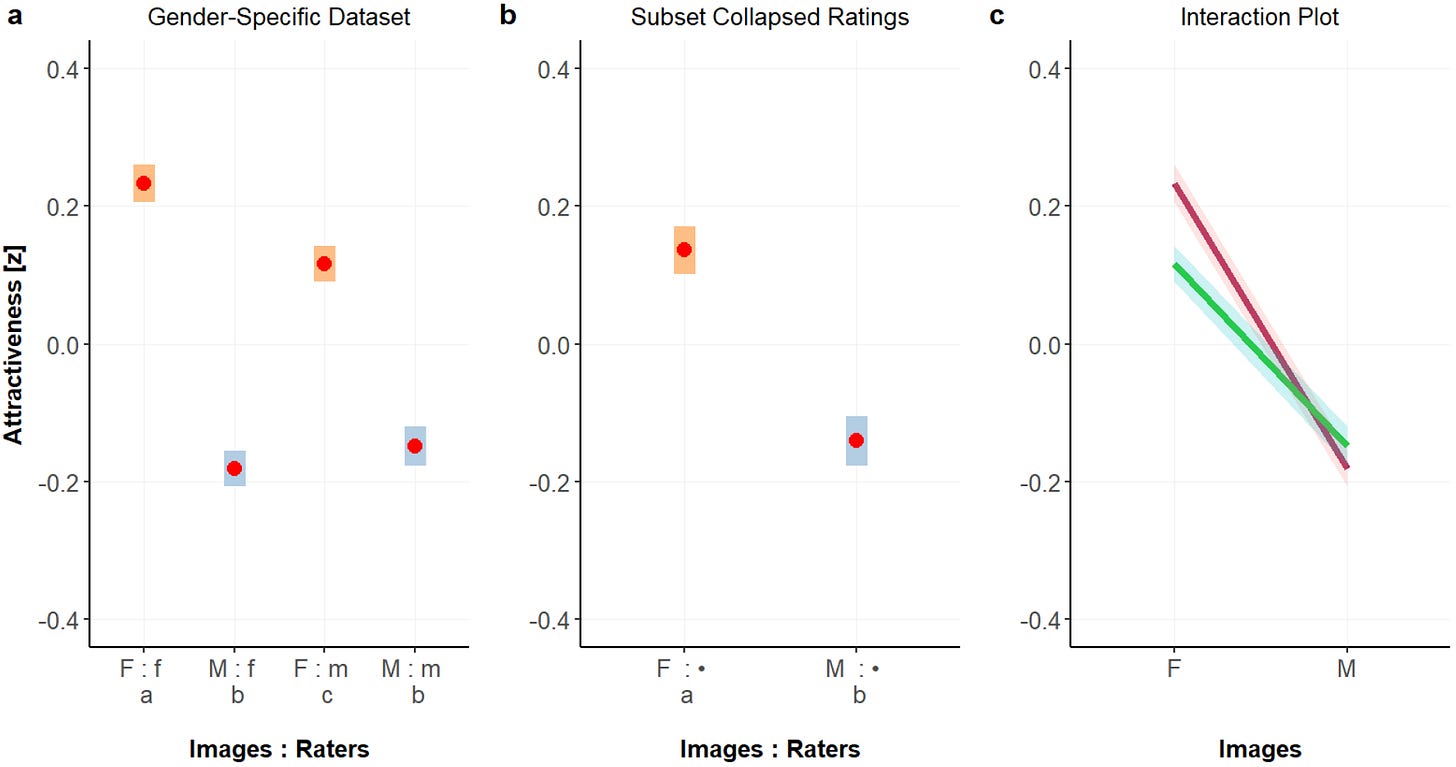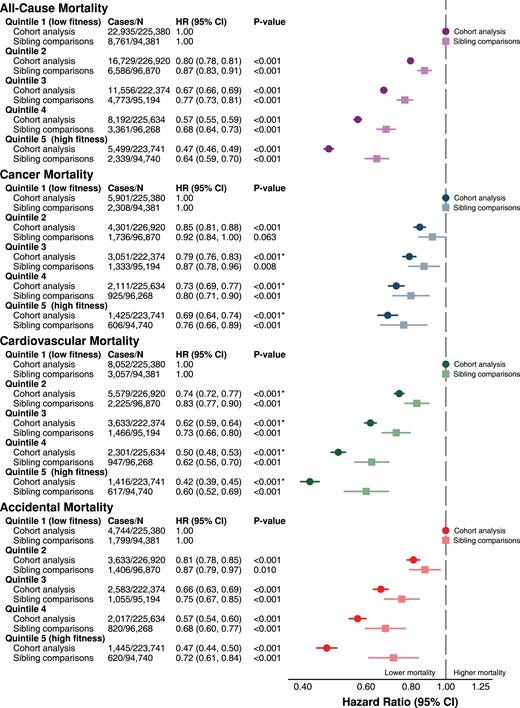The Gender Attractiveness Gap, Car Seats as Contraception, and How Marx Will Make You Poorer
The Nature-Nurture-Nietzsche Linkfest for May 2025

Welcome to the May edition of the N3 Newsletter Linkfest - a collection of links to the most interesting, surprising, and provocative articles I’ve come across in the last month. On the menu this time…
Why having kids will have no impact on climate change
Why Black people report milder cold symptoms than White people
When the media mentions a murder suspect’s race - and when it doesn’t
Which mental illnesses are more common on the left and which on the right
The IQs and sex ratios of different college majors
A failed replication of one of the most famous findings in psychology
…and much more!
You can browse the full Linkfest archive here.
Women Are Better Looking Than Men
Scientists going back as far as Darwin have argued that women are the more beautiful sex - the reverse of what we find in most other species. As I like to put it, when it comes to physical attractiveness, females in our species have the larger peacock’s tail. Consistent with this idea, a new meta-analysis finds that, across the globe, both sexes consider women’s faces more attractive than men’s. [Link.]

Bars depict estimated marginal means (EMMs), including their 95% confidence intervals. Panel a shows the results for the Gender-Specific Dataset, where ratings were provided separately by male and female raters. The gender of the facial image is indicated in capital letters, while the gender of the rater is shown in lowercase letters, e.g., in condition 'F : m', female faces were rated by male raters. Note that: (1) male faces (in blue) generally receive lower attractiveness ratings (Gender Attractiveness Gap), (2) male raters tend to assign lower ratings overall (Gender Rating Gap), and (3) the discrepancy between female and male faces is more pronounced among female raters. Within each panel, conditions marked with different subscript letters are significantly different at a p-value of < 0.001. Source: Wassiliwizky et al. (2025). Why are women more beautiful? Here’s an excerpt from my last book, The Ape That Understood the Universe, where I argue that it stems from men’s stronger preference for good looks in a mate. I’ll expand on this theory in my next book, A Billion Years of Sex Differences. [Link.]
Earlier, I touched on the idea that mate preferences are not merely products of evolution; they’re also causes of evolution. Peahens prefer males with dazzling tails, and as a result, males’ tails evolve to be more and more dazzling with each passing generation. What happens, then, when men have a stronger preference than women for a good-looking mate? And what happens when women have a stronger preference for a mate possessing wealth and status? The answer is that men and women, in effect, selectively breed each other for the traits they most want in a partner.
This might explain a number of unique and otherwise inexplicable facts about our species – facts that would bamboozle our alien scientist. In many species, including many birds, lizards, and insects, the males are gaudy and ornamented whereas the females are drab and sensibly “attired”: They blend in with the background rather than standing out and risking grabbing the ravenous attention of a passing predator. In our species, if anything, it’s the other way round. To see what I mean, look at any modern Western wedding; it’s the woman who dresses in the most expensive, extravagant outfit, while the man dresses in a standard-issue penguin suit. The bride, in other words, is the peacock, the groom her drab sidekick. This is a puzzling reversal of the usual pattern in nature. Whereas humans see male peacocks as more aesthetically appealing than peahens, an aesthetically-inclined peacock (or alien scientist) would probably see women as more aesthetically appealing than men. We certainly seem to; that’s why beauty pageants are usually competitions among women. The fact that men place more weight on a mate’s appearance might explain where the sex difference in attractiveness originally came from. Just as humans selectively bred fruit to be sweeter and dogs to be friendlier, men selectively bred women to be the better-looking sex.
Car Seats as Contraception
Car-seat laws may function as contraception. Most cars can’t fit three car seats, so having a third child means buying a much larger, more expensive car. As a result, fewer people have more than two kids. According to one analysis, U.S. car-seat laws saved 57 lives in 2017, but resulted in 8,000 fewer births. [Link.]
Photo by Alexander Grey on Unsplash
Myth of the Month
A new paper argues that reducing the size of the human population would have close to zero effect on climate change. A baby born today will have a smaller carbon footprint than one born a decade or two ago, and their kids’ carbon footprints will be even smaller. As a result of population momentum, population numbers won’t decline for several generations - and by the time they do, people’s carbon footprints may be negligible anyway. The authors estimate that population reduction would lower global temperatures by only 0.05°C compared to population stabilization. [Link.]
Healthy Living
Physical fitness may not increase longevity after all. Not as much as we thought anyway. A recent study found that physical fitness is associated with lower mortality due not only to cardiovascular disease and cancer but also to accidents - something we wouldn’t expect physical fitness to directly affect. This suggests that the link between physical fitness and longevity is at least partly due to factors correlated with physical fitness, as opposed to physical fitness itself. Likely culprits include socioeconomic status, risk-taking, and genes. [Link.]
Black people report less severe cold symptoms than White people. The reason seems to be that, on average, Black people are less prone to depressive affect - a trait known to amplify perceived symptom severity. This is an example of a phenomenon known as the Black-White mental health paradox: the finding that, despite having worse social and economic outcomes, Black people often have better mental health. [Link.]




